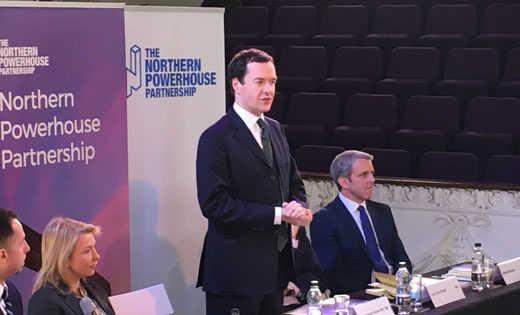Inside track - 7 February - Professor Lisa Roberts
Professor Lisa Roberts, Deputy Vice-Chancellor: Research and Innovation, talks about the contribution that Leeds research can make to economic growth.

Two significant announcements in the past fortnight have underlined the importance of high quality university-led research for future economic growth, and I’m sure that Leeds is poised to seize the opportunity to capitalise on these initiatives.
The first, the government’s newly-published government green paper – Building on our Industrial Strategy – includes proposals to enhance support for research and innovation, and the indication of expansion of research funding to universities is a positive message for a research intensive university like Leeds.
The paper sets out 10 ‘strategic pillars’ that the government believes will improve economic growth by driving innovation and increasing productivity. Leeds is ideally placed to respond to the challenges within almost all of the pillars, and so I will highlight just a few examples.
Under the ‘Research and innovation’ pillar, the government has outlined ‘challenge areas’ where the UK has existing strengths that should be further enhanced and developed. These areas map very well to research strengths at Leeds, including: advanced manufacturing, robotics and artificial intelligence, healthcare and medicine, clean energy, bioscience and biotechnology, and transport.
To address the challenge areas, the government plans to provide an extra £4.7bn of funding to support research and development, and will establish a new funding stream – the Industrial Strategy Challenge Fund.
The paper also states that there will be more opportunities for funding of the creative industries – another welcome message for Leeds, which is timely given the recent launch of our Cultural Institute.
The government also commits to “helping businesses start and grow” and to enabling businesses and universities to collaborate in research to drive innovation.
Collaboration is one of the key themes of the second announcement: the publication of the Northern Powerhouse Partnership’s (NPP) first report. The partnership is led by George Osborne, the former chancellor, and includes Lord O’Neill, former Commercial Secretary to the Treasury, and Dame Nancy Rothwell, President of the University of Manchester.

The Partnership’s aim is to increase the impact and contribution of the north to the UK economy as a whole.
Its report cites the region’s ‘brilliant universities’ and calls for the north to become ‘a net importer of graduates, particularly in science and technology’ to support growth.
It highlights areas of excellence which, as with the Industrial Strategy, are in abundance at Leeds – advanced manufacturing, advanced materials, digital, energy and health innovation. Greater emphasis on working with civic leaders and businesses or industry also form overarching themes which will create growth and economic impact.
Our new innovation centre, Nexus, is designed to directly address these objectives, so we must ensure we articulate the unique role it can play in driving collaborative innovation and supporting economic growth. The support for world-class ‘clusters’ of research and innovation is a positive sign for the future of our N8 research partnership and the White Rose University Consortium.
It is clear that ’place’ or regional partnerships are key to delivery of both of the strategies, so it is important that we work more closely than ever with our neighbour institutions, Leeds City Council and the Local Enterprise Partnership (LEP) etc.
As part of the forthcoming research and innovation strategic delivery plan we will be conducting a strategic review of our research partnerships, to see how we support and enhance them, but equally importantly, how we identify the new partnerships we should foster to generate maximum impact from our research.
The University has always been ahead of many of its peers in working with industry to secure student placements and work experience. This track record feeds in to both the green paper’s ‘developing skills’ pillar and the NPP report, as do our centres for doctoral training which nurture and develop the next generation of researchers. Further support for such schemes is very welcome and we would be well positioned for new opportunities in these areas.
To take full advantage of the initiatives and opportunities outlined in the green paper especially, it is vital that we are in a position to respond quickly and creatively to new calls for funding. To ensure this is the case, I’m establishing an Industrial Strategy Steering Group (ISSG).
The idea is that a lead academic for each research challenge area will sit on ISSG and that the group will work with others across the institution to proactively develop and draft ideas for bids, so that we are ready to move at pace when new calls emerge. We also aim to get input from our industrial partners and shape proposals in the skills development areas.
As well as this groundwork that will enable us to make agile, innovative responses to funding calls, the ISSG will also oversee our response to the green paper consultation.
Of course, we will also actively engage in briefings and meetings with MPs and local and regional partners to ensure that we feed into the development of both the Industrial Strategy and the NPP.
We will make sure we take every opportunity to highlight the strength and relevance of our world-leading expertise, ensuring Leeds is well-positioned to lead on and respond to this strategy for growth.
Professor Lisa Roberts
Send your comments to internalcomms@leeds.ac.uk
Posted in: My Week